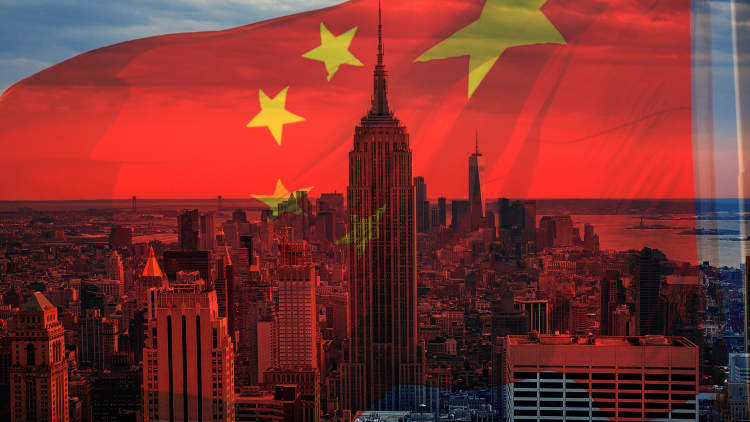Credit Suisse CEO Tidjane Thiam is bullish on China, and sees opportunities as its economy shifts to a consumer-driven one — making it "less sensitive" to trade.
"We have very positive expectations about China long term," he said at the Credit Suisse China Investment Conference in Shenzhen on Wednesday. "We believe that the fundamentals that have been driving China's growth for so many years are intact."
"There is ... a shift of the Chinese model from a manufacturing, export-oriented model, to a more consumer-oriented, domestic-based economy, that will also be less sensitive to issues like trade," Thiam added, flagging healthcare and technology as two sectors he believes in.
China is currently embroiled in a trade dispute with the U.S., which has led to both sides imposing tariffs on billions of dollars worth of each other's goods. The world's two biggest economies are currently trying to reach a 'phase one' trade deal, which has yet to be signed.
Amid those trade tensions, tariffs have hit China's exports and its economy has increasingly declined, with the country reporting that third-quarter GDP grew by a slower-than-expected 6%. Its GDP has fallen sharply since the first quarter of 2018, when the trade war began.
The upside is huge ... We are investing and will continue to invest for the long term to support the Chinese economy.Tidjane ThiamCEO of Credit Suisse
Still, analysts have pointed out that those trade concerns are overrated. They say China's burgeoning domestic economy contributes more to growth than its exports.
In recent months, Beijing has also unveiled measures to boost consumption, which include extending retail hours to help lift China's "night economy."
Financial sector is 'key'
The financial sector has a "key role" to play in transforming China's economy, Thiam said.
"Take pensions for example ... huge opportunity. As (the) social safety net develops, as the population ages, the assets in the pension sector are going to grow very strongly," he said, adding that Credit Suisse is in the "biggest" asset management joint venture in the country with state-owned Chinese bank ICBC.
"We feel that the patience and the belief that we've had in the Chinese economy is being rewarded. The upside is huge ... We are investing and will continue to invest for the long term to support the Chinese economy," he said.

Beijing has said it wants to open up its financial sector to more foreign investment, and allow foreign companies to compete on an equal footing with its domestic firms.
Last year, Chinese A-shares — yuan-denominated stocks traded on mainland China — were included in the MSCI Emerging Markets Index. MSCI quadrupled the weighting of A-shares this year.
Also this year, Chinese bonds were included in the widely followed Bloomberg Barclays index.
Those developments are expected to bring billions of dollars worth of fresh foreign inflows into the Chinese economy.


